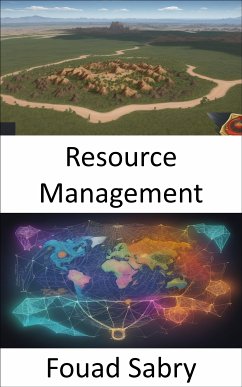When it comes to organizational studies, resource management refers to the process of developing an organization's resources in a way that is both efficient and effective when those resources are required. The financial resources, inventory, human skills, production resources, in addition to natural resources and information technology (IT), are examples of the types of resources that fall under this category.
How you will benefit
(I) Insights, and validations about the following topics:
Chapter 1: Resource management
Chapter 2: Business
Chapter 3: State-owned enterprise
Chapter 4: Corporate governance
Chapter 5: Resource allocation
Chapter 6: Program management
Chapter 7: State ownership
Chapter 8: Economic system
Chapter 9: Stakeholder (corporate)
Chapter 10: Corporate transparency
Chapter 11: Social peer-to-peer processes
Chapter 12: Project portfolio management
Chapter 13: Project management office
Chapter 14: Economic planning
Chapter 15: Natural resource management
Chapter 16: Resource leveling
Chapter 17: Resource
Chapter 18: Strategic alignment
Chapter 19: Natural resource
Chapter 20: Voluntary disclosure
Chapter 21: Spider Project
(II) Answering the public top questions about resource management.
(III) Real world examples for the usage of resource management in many fields.
Who this book is for
Professionals, undergraduate and graduate students, enthusiasts, hobbyists, and those who want to go beyond basic knowledge or information for any kind of Resource Management.
Dieser Download kann aus rechtlichen Gründen nur mit Rechnungsadresse in A, B, BG, CY, CZ, D, DK, EW, E, FIN, F, GR, H, IRL, I, LT, L, LR, M, NL, PL, P, R, S, SLO, SK ausgeliefert werden.









